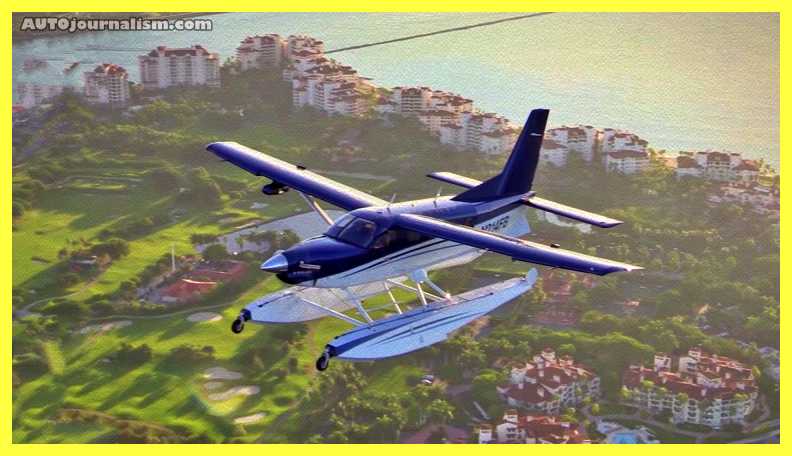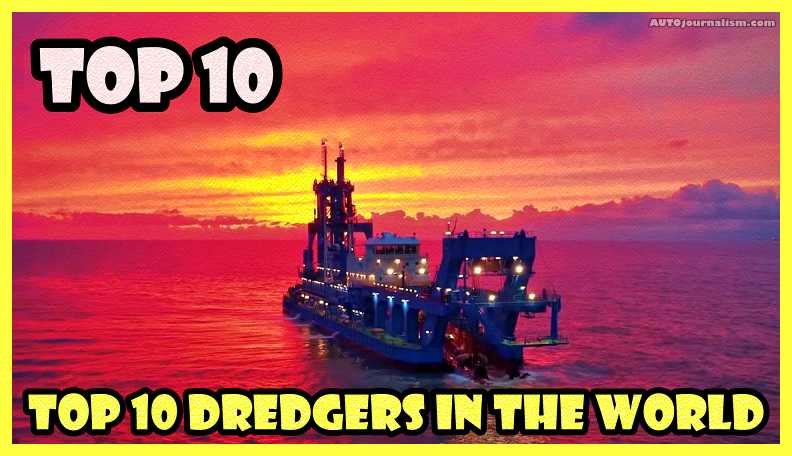Top 10 Best Amphibious Cars in the World
Today we will give you the list of the Top 10 Best Amphibious Cars in the World 2024 and you can Download this Page as a PDF in 1 click, just go to the end of this Page, So let’s Start.
Table of Contents
- In the realm of automotive innovation, amphibious cars represent a fascinating fusion of land and water capabilities. These remarkable vehicles are designed to seamlessly transition from roads to waterways, pushing the boundaries of what automobiles can achieve. Here, we explore the top 10 best amphibious cars in the world, each a testament to engineering excellence, versatility, and aquatic prowess.
Table of Top 10 Best Amphibious Cars in the World
Here’s the information presented in a condensed table format with three columns for a more compact view:
| Rank | Car Model | Specifications |
|---|---|---|
| 1 | WaterCar H1 |
|
| 2 | WaterCar Python |
|
| 3 | Hydra Spyder |
|
| 4 | Gibbs Amphibians Aquada |
|
| 5 | WaterCar Panther |
|
| 6 | Ghe-O Rescue |
|
| 7 | Viking 29031 |
|
| 8 | HUNTA OVERCOMER |
|
| 9 | Predator 4×4 |
|
| 10 | Amphicruiser |
|
This format provides a clear and concise overview of the specifications for each amphibious car.
Also read: India journalism
The 10 Most Amazing Amphibious Cars in the World
Amphibious cars have always captured the imagination of automobile enthusiasts and adventurers alike. These high-performance vehicles are designed to adapt to various types of terrain, providing a seamless transition from land to water. With the ability to withstand extreme conditions, these amphibious cars are not just a means of transportation; they are a testament to engineering ingenuity and innovation. Here, we explore the top 10 most amazing amphibious cars in the world, each one offering a unique blend of power, versatility, and aquatic prowess.
#10. Amphicruiser Amphibious Car

The Amphicruiser, based on a Toyota Land Cruiser, hails from the Netherlands. This 4×4 vehicle is engineered for remote areas, with its ability to navigate difficult terrain and travel through water at a speed of 9 kilometers per hour. With an impressive combination of power and durability, it can transport up to 5 occupants and carry a load of 300 kilograms.
#9. Predator 4×4 Amphibious Car
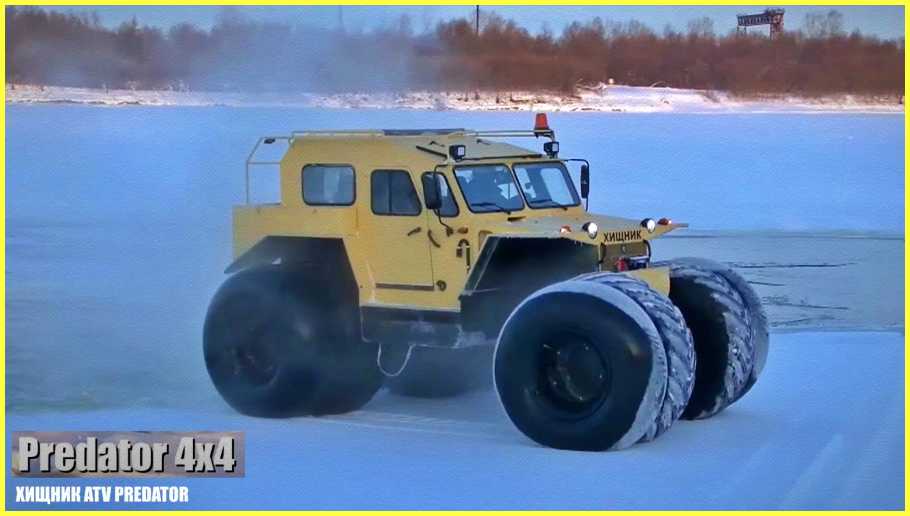
Manufactured in Russia, the Predator 4×4 is an all-terrain vehicle renowned for its versatility and maneuverability. Equipped with ultra-low pressure tires and a central tire inflation system, it can traverse challenging landscapes and obstacles. With space for 6 occupants, this vehicle can reach speeds of up to 50 kilometers per hour on land and 4.5 kilometers per hour in water.
#8. HUNTA OVERCOMER Amphibious Car
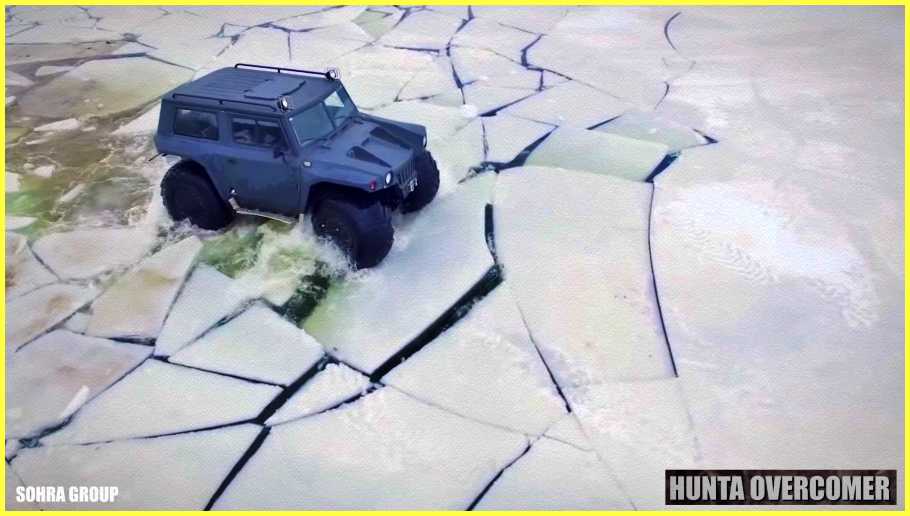
From Belarus comes the HUNTA OVERCOMER, a resilient vehicle designed to explore extreme locations, including swampy areas and icy waters. With a screw propeller for aquatic movement, it can reach speeds of 70 kilometers per hour on land and 8 kilometers per hour in water. This versatile vehicle can carry 7 occupants and a load of 1 ton, making it ideal for challenging terrains.
#7. Viking 29031 Amphibious Car
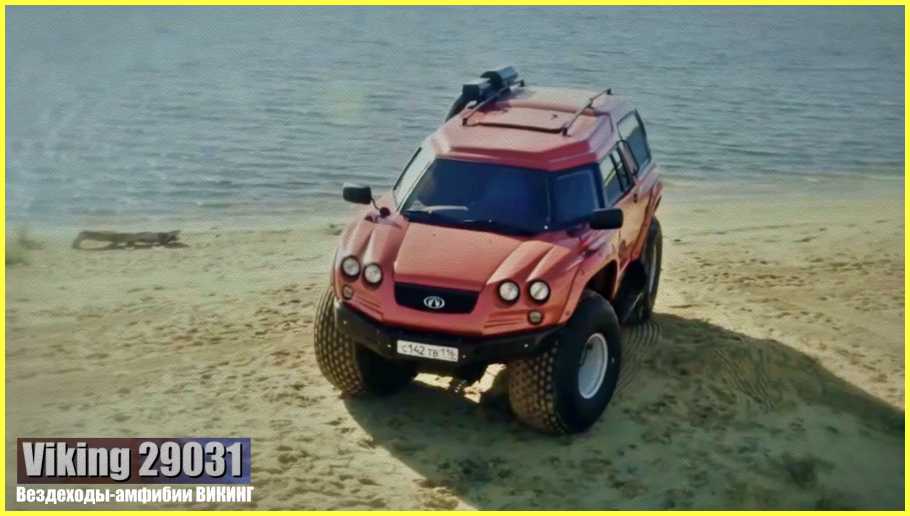
The Russian-manufactured Viking 29031 is a high-performance multipurpose vehicle tailored for extreme terrains, including sand, mud, snow, and deep water. With an engine boasting 160 horsepower, it can achieve speeds of over 80 kilometers per hour on land and 12 kilometers per hour in water. Its impressive range of 1,000 kilometers, coupled with the capacity to carry 7 occupants, makes it a popular choice for exploration and rescue missions.
#6. Ghe-O Rescue Amphibious Car

Romania’s contribution to the amphibious car world is the Ghe-O Rescue, a powerful and versatile vehicle designed to operate in all weather conditions. With two water tanks capable of holding 650 liters, it can even serve as a firefighting vehicle. Equipped with a 500-horsepower engine, this vehicle can accommodate 11 occupants and can be customized with various accessories to enhance its performance in water and snow.
#5. WaterCar Panther Amphibious Car
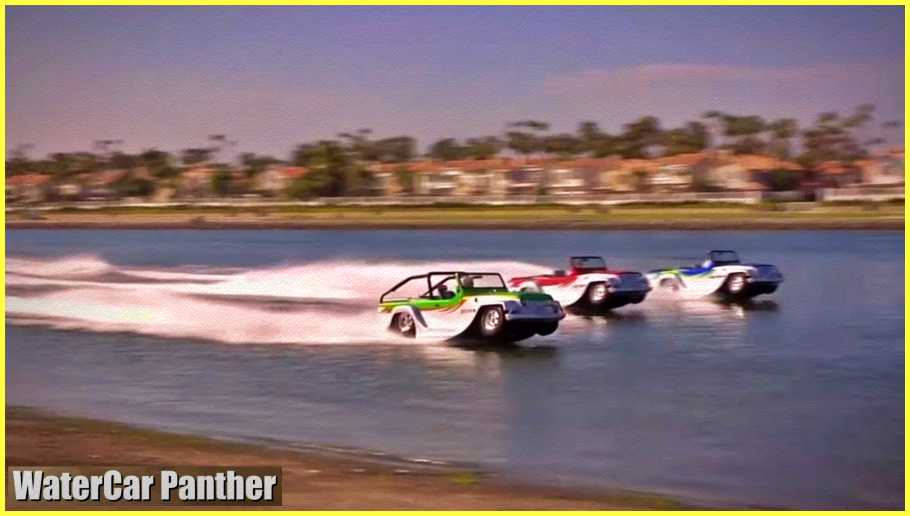
Manufactured in the United States, the WaterCar Panther is a fast and versatile multipurpose vehicle suitable for both recreational and professional use. With a diesel engine boasting 305 horsepower, it can accelerate from 0 to 100 kilometers per hour in mere seconds. Its ability to transition from land to water within seconds, coupled with a top speed of 137 kilometers per hour on land and 72 kilometers per hour in water, makes it a remarkable choice for adventurers and rescue services alike.
#4. Gibbs Amphibians Aquada Amphibious Car
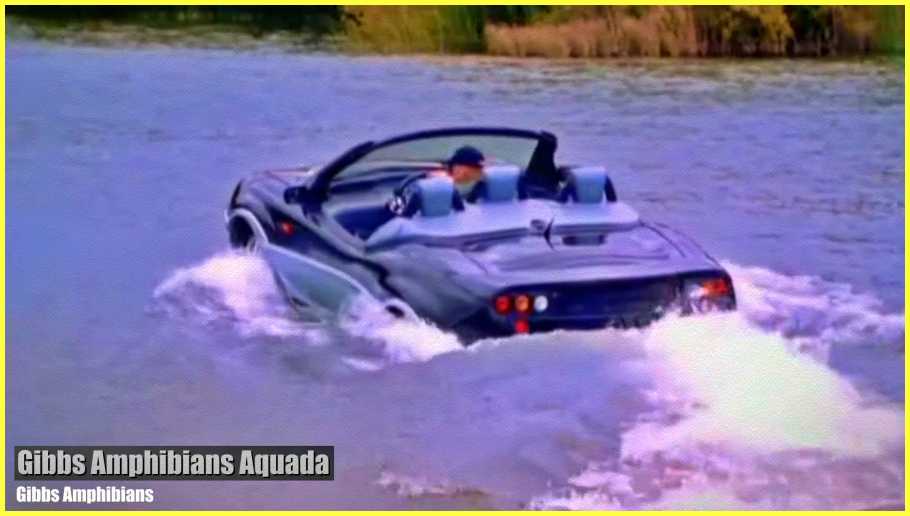
The Gibbs Amphibians Aquada, originating from the United Kingdom, is a high-speed and maneuverable vehicle primarily used for leisure purposes. Its innovative design includes a central driver position, allowing it to accommodate a passenger and a water skier. With a top speed of over 160 kilometers per hour on land and 48 kilometers per hour in water, this lightweight vehicle combines agility with aquatic prowess, providing an unparalleled driving experience.
#3. Hydra Spyder Amphibious Car
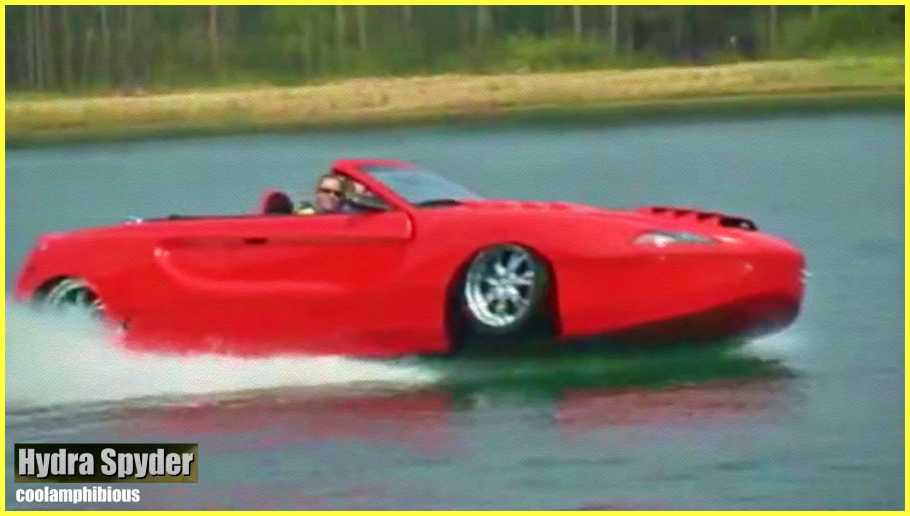
A product of the United States, the Hydra Spyder is a high-speed, high-performance sports vehicle designed for recreational use. With a stunning aluminum alloy and fiberglass construction, it boasts a powerful 400-horsepower engine capable of reaching speeds of 200 kilometers per hour on land and 85 kilometers per hour in water. Its elegant interior and exterior design, coupled with exceptional maneuverability, make it a popular choice among sports car enthusiasts.
#2. WaterCar Python Amphibious Car
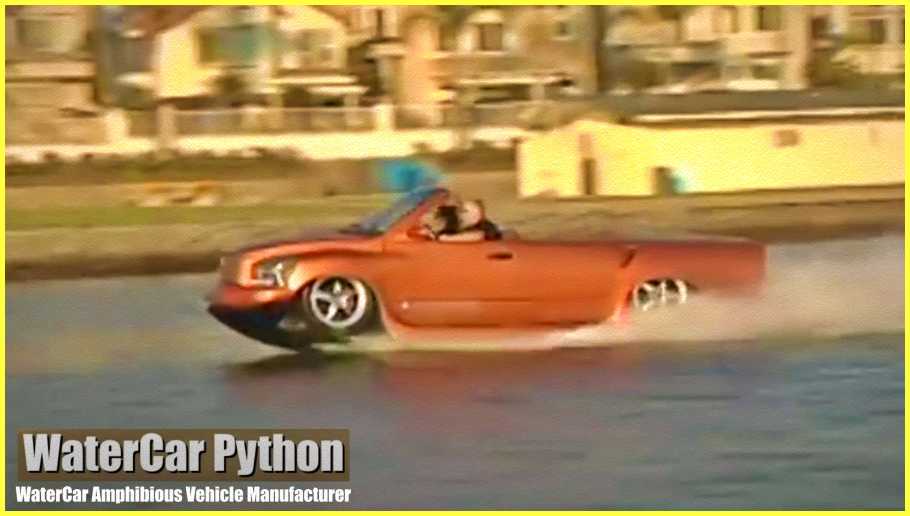
Regarded as the fastest amphibious car in the world, the WaterCar Python delivers unmatched speed and performance. With a jaw-dropping acceleration from 0 to 100 kilometers per hour in just 4.6 seconds, it is a powerhouse on both roads and water bodies. Equipped with a V8 engine generating 450 horsepower, this 6.2-meter-long vehicle can reach speeds of 204 kilometers per hour on land and 100 kilometers per hour in water, setting new standards for amphibious car technology.
#1. WaterCar H1 Amphibious Car
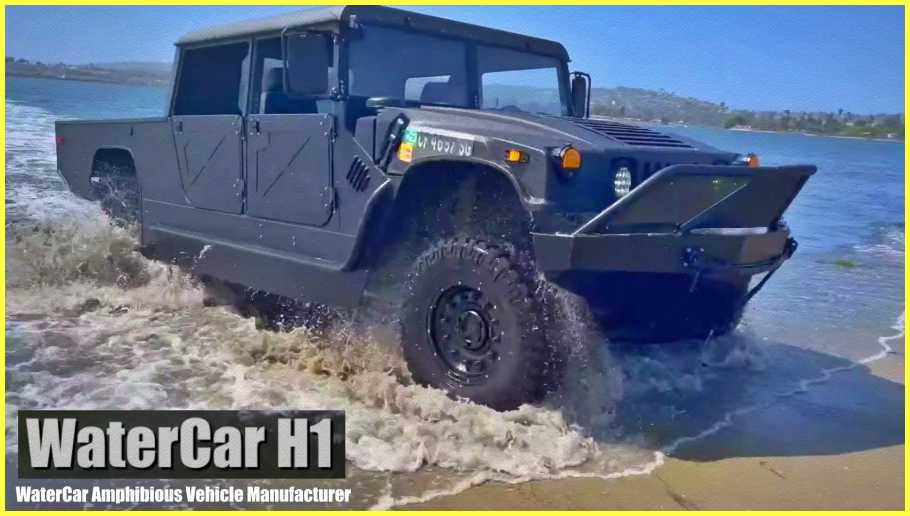
Topping the list is the robust and versatile WaterCar H1, a high-speed amphibious utility vehicle based on the military vehicle “Humvee.” Manufactured in the United States, the H1 is designed to navigate turbulent waters and harsh conditions with ease. With a transition time of just 20 seconds from land to water, it features large tires for challenging terrains. Powered by a 395-horsepower engine, it can reach speeds of 60 mph in water and has an impressive range of 150 kilometers.
Here’s a complete table summarizing the information about the WaterCar H1-Panther, an amphibious vehicle, including its specifications and historical context:
| Vehicle Model | WaterCar H1-Panther |
|---|---|
| Description | The WaterCar H1-Panther is a versatile amphibious all-terrain utility vehicle capable of achieving highway speeds on land and 35 knots on the water. |
| Versatility | Considered one of the most versatile and capable amphibious vehicles ever built, it excels on both land and water, designed to withstand rough terrain and challenging water conditions. |
| Production | Produced by WaterCar, a California-based company. |
| Top Speed | – Land: 127 mph – Water: 60 mph (Guinness World Record for the fastest amphibious car) |
| Price (2022) | $135,000 (Original list price: $158,000) |
| Specifications | – Seats five to six passengers – Chevrolet LS3 gasoline engine with 395 horsepower and 375 pound-feet of torque – Four-by-four automatic transmission – Mercury Bravo 2 Outdrive (Prop) – Power steering and brakes – Air conditioning (optional) – Body constructed out of high-strength aluminum |
| Transition Time | Can transition between land and water in under 20 seconds. |
| Historical Context | Amphibious vehicles have a long history, dating back to the 1800s. The Amphicar 770, which began production in 1961, was the world’s first commercial amphibious car. |
The WaterCar H1-Panther stands out as a high-performance and versatile amphibious vehicle, offering an impressive combination of land and water capabilities.
In conclusion,
- In conclusion, these top 10 best amphibious cars exemplify the pinnacle of automotive engineering, blending speed, versatility, and aquatic capability. As technology continues to advance, these vehicles pave the way for a future where the distinction between land and water travel becomes increasingly blurred, offering exciting possibilities for adventurers and enthusiasts around the world.
Also Read:

